The recent African Business Conference stood as a beacon of hope and collaboration, where luminaries from various fields converged to illuminate pathways toward economic empowerment across the continent. With a vibrant tapestry of sessions encompassing diaspora engagement, sustainable resource management, healthcare innovation, and technological advancement, the conference offered a panoramic view of Africa’s development trajectory and the challenges and opportunities it presents.
The event commenced with an auspicious welcome from Laura Buhnange, President of the Africa Business Club, and Noelle Boyd, President of the SAIS Africa Club. Their opening remarks set the stage for a day of robust discussions and meaningful exchanges aimed at catalyzing positive change in Africa’s economic landscape.
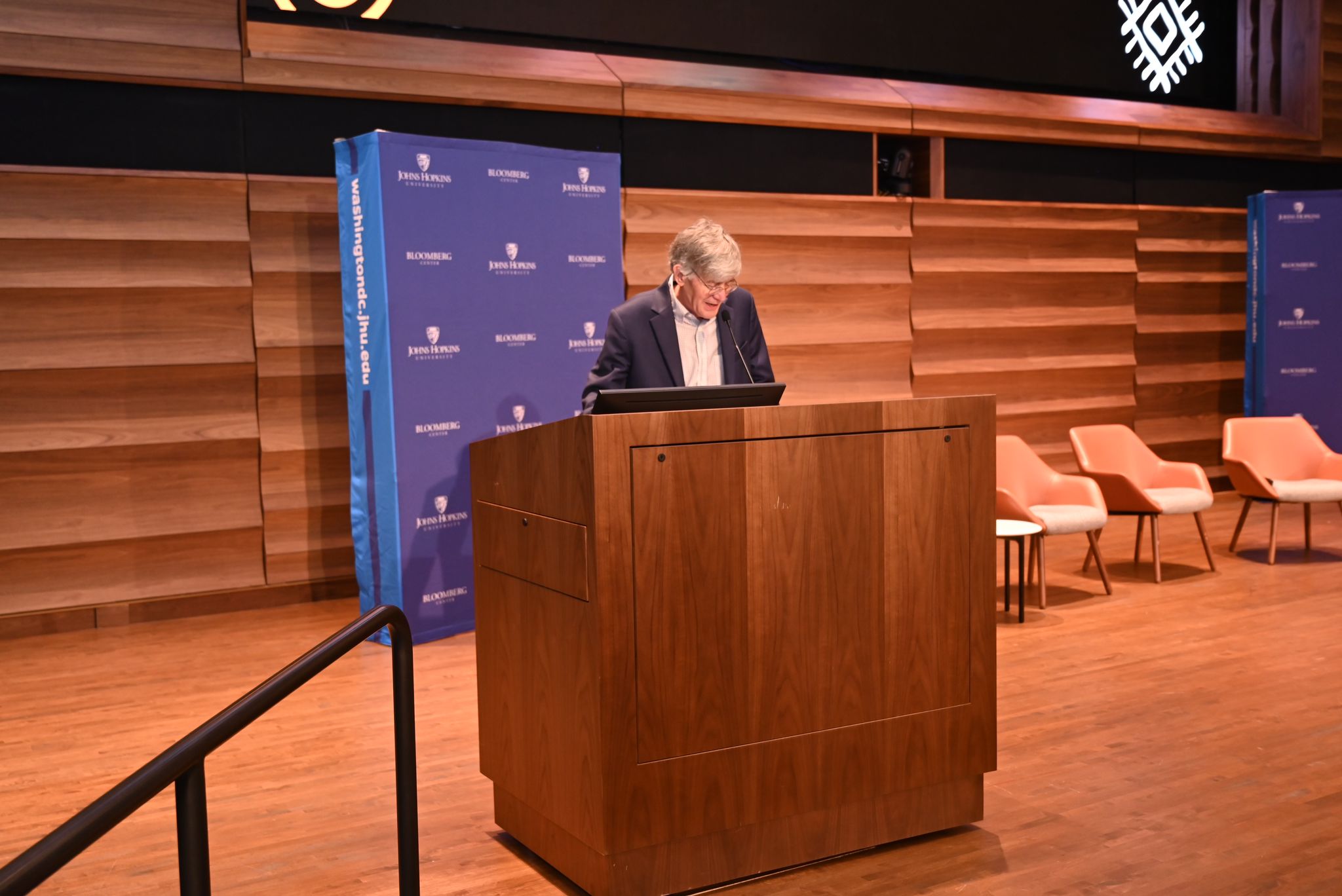
Associate Dean James Calvin representing Johns Hopkins Carey Business School and Vice Dean Chiedo Nwankwor from the Johns Hopkins School of Advanced International Studies greeted attendees with a message emphasizing the paramount importance of diversity, equity, and inclusion in fostering sustainable development. Dean James Steinberg further underscored the pivotal role of education and academic excellence in shaping Africa’s future leaders, setting a tone of academic rigor and intellectual engagement for the day’s proceedings.
The keynote address by Deniece Laurent-Mantey, Executive Director of State Department’s African Diaspora Relations, resonated deeply with attendees as she eloquently articulated the vital role of diaspora engagement in driving economic growth and development on the continent. Laurent-Mantey’s impassioned plea for greater collaboration between the diaspora and local communities struck a chord, igniting conversations on harnessing the collective expertise and resources of the African diaspora to fuel Africa’s progress.
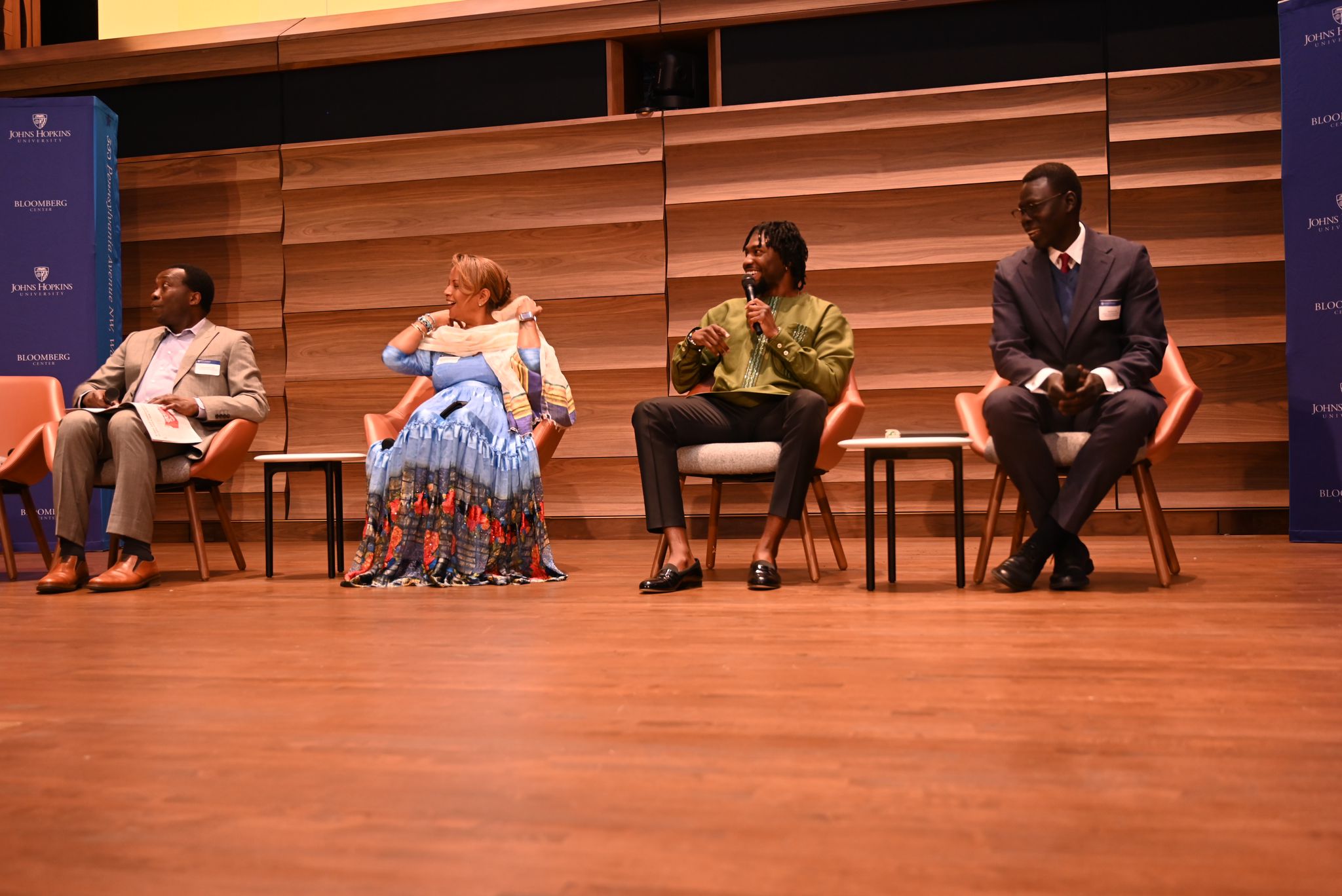
Following the keynote address by Deniece Laurent-Mantey, the plenary panel, moderated by Dr. Constant Beugre, provided a comprehensive exploration of key issues surrounding Africa’s economic development. Dr. Beugre, a Professor of Management & Entrepreneurship at the College of Business, Delaware State University, brought his wealth of expertise to the forefront as he guided the discussion with insight and poise.
Kadmiel Van Der Puije, CEO of The Voice of Africa, emerged as a pivotal voice on the panel, offering valuable insights into diaspora engagement and its role in driving economic growth. With a keen focus on leveraging the skills and networks of African communities abroad, Van Der Puije underscored the importance of fostering partnerships between the diaspora and local stakeholders to support entrepreneurship and investment in African nations.
Abraham Akoi, Advisor to the Executive Director at the World Bank Group, contributed his seasoned perspective on sustainable resource management and job creation. Drawing from his extensive experience, Akoi challenged prevailing models of resource extraction, advocating for practices that prioritize equitable distribution and community development. His emphasis on balancing economic growth with environmental sustainability resonated strongly with attendees, sparking discussions on innovative approaches to resource management.
Rebkha Atnafou-Boyer, a Principal Investigator, Research Analyst, and Director at Johns Hopkins School of Medicine, brought a unique blend of expertise in research and academia to the panel. Atnafou-Boyer’s focus on education reform and gender equality resonated deeply with the audience, as she highlighted the transformative power of education in driving inclusive growth and societal progress. Her advocacy for comprehensive educational reforms underscored the need for increased investment in teacher training, curriculum development, and infrastructure improvements to ensure equitable access to quality education for all Africans.
Patrick Ukata, a distinguished faculty member at SAIS Africa Studies Department, enriched the dialogue with his insights into infusing expertise for demographic dividends. Ukata’s deep understanding of economic trends and projections illuminated the urgency of equipping Africa’s burgeoning population with the skills and opportunities needed to thrive in the global economy. His call for strategic investments in education and entrepreneurship underscored the importance of human capital development in unlocking Africa’s full potential.
Together, these panelists brought a wealth of knowledge and experience to the discussion, offering diverse perspectives on key issues shaping Africa’s economic landscape. Under the adept moderation of Dr. Constant Beugre, the plenary panel provided attendees with valuable insights and actionable strategies for advancing economic empowerment across the continent.
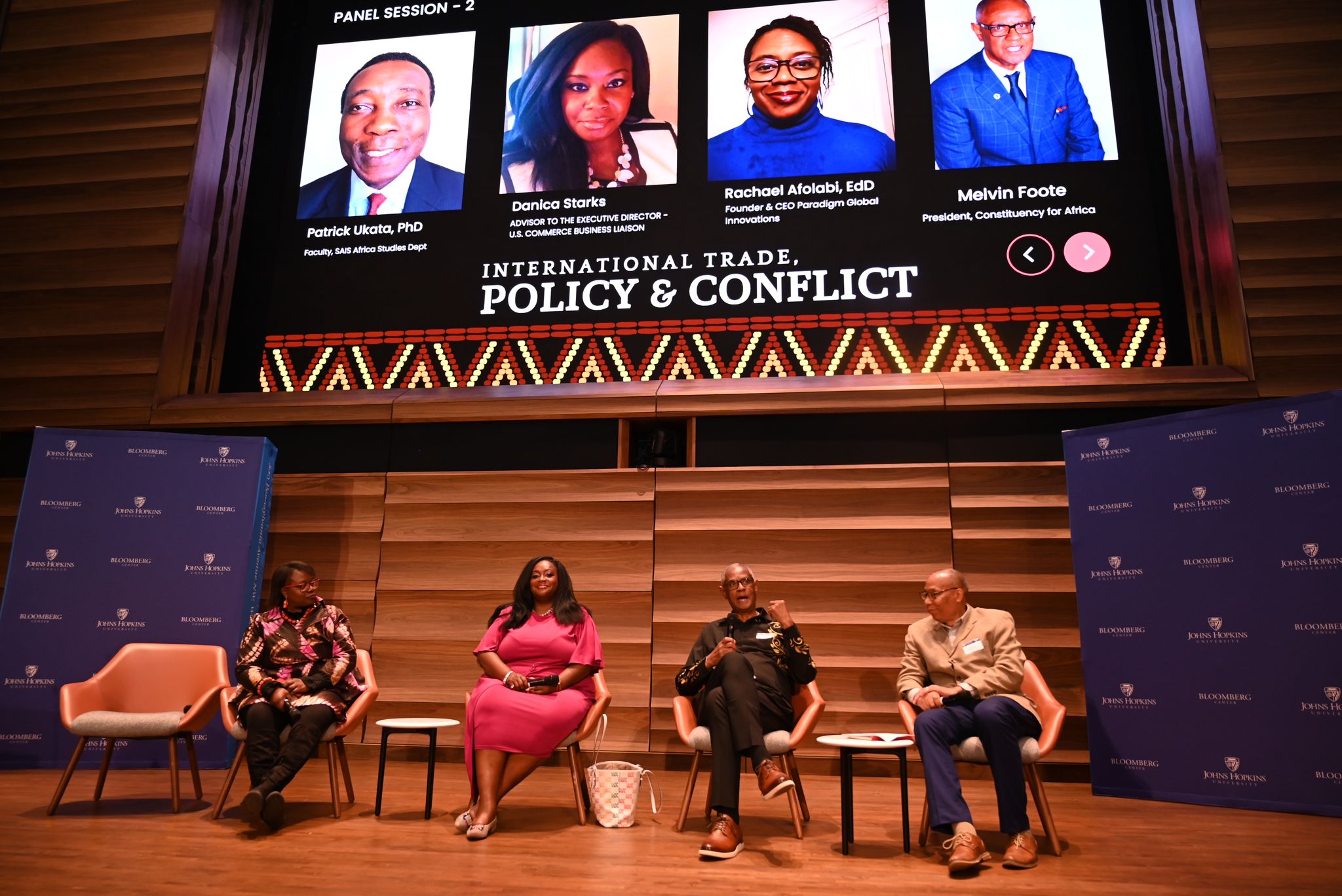
As the discussion shifted towards international trade, policy, and conflict, Learned Dees, an esteemed Foreign Service Officer and Adjunct Lecturer at SAIS, assumed the role of moderator, guiding the conversation with finesse and expertise. With a background in diplomacy and academia, Dees brought a nuanced understanding of global affairs to the panel, ensuring a well-rounded exploration of the complex issues at hand.
Melvin Foote, President of Constituency for Africa, lent his vast experience in international relations to the discussion, offering valuable insights into the interplay between trade policies and socio-economic development in Africa. Foote’s advocacy for policies that promote inclusive growth and equitable trade relationships resonated with attendees, sparking discussions on the importance of fostering mutually beneficial partnerships with international stakeholders.
Danica Starks, Advisor to the Executive Director at U.S. Commerce Business Liaison, brought a wealth of knowledge on trade policy and commerce to the panel. With a background in government and business, Starks provided valuable perspectives on navigating regulatory frameworks and fostering cross-border cooperation to drive economic growth. Her insights into the role of trade diplomacy in addressing global challenges underscored the importance of collaboration and dialogue in shaping international trade agendas.
Rachael Afolabi, Founder & CEO of Paradigm Global Innovations, offered a dynamic perspective on leveraging innovation and entrepreneurship to address socio-economic challenges in Africa. Afolabi’s experience in leading a technology-driven startup highlighted the potential for innovation to drive economic development and foster inclusive growth. Her emphasis on harnessing technology as a catalyst for positive change resonated strongly with attendees, igniting discussions on the role of entrepreneurship in driving sustainable development.
Together, Dees, Foote, Starks, and Afolabi brought a wealth of expertise and insight to the panel, offering diverse perspectives on international trade, policy, and conflict. Under the adept moderation of Learned Dees, the panel provided attendees with valuable insights into the complex dynamics shaping Africa’s engagement with the global economy. Through their collective wisdom and experience, the panelists inspired dialogue and action towards fostering inclusive and sustainable development across the continent.
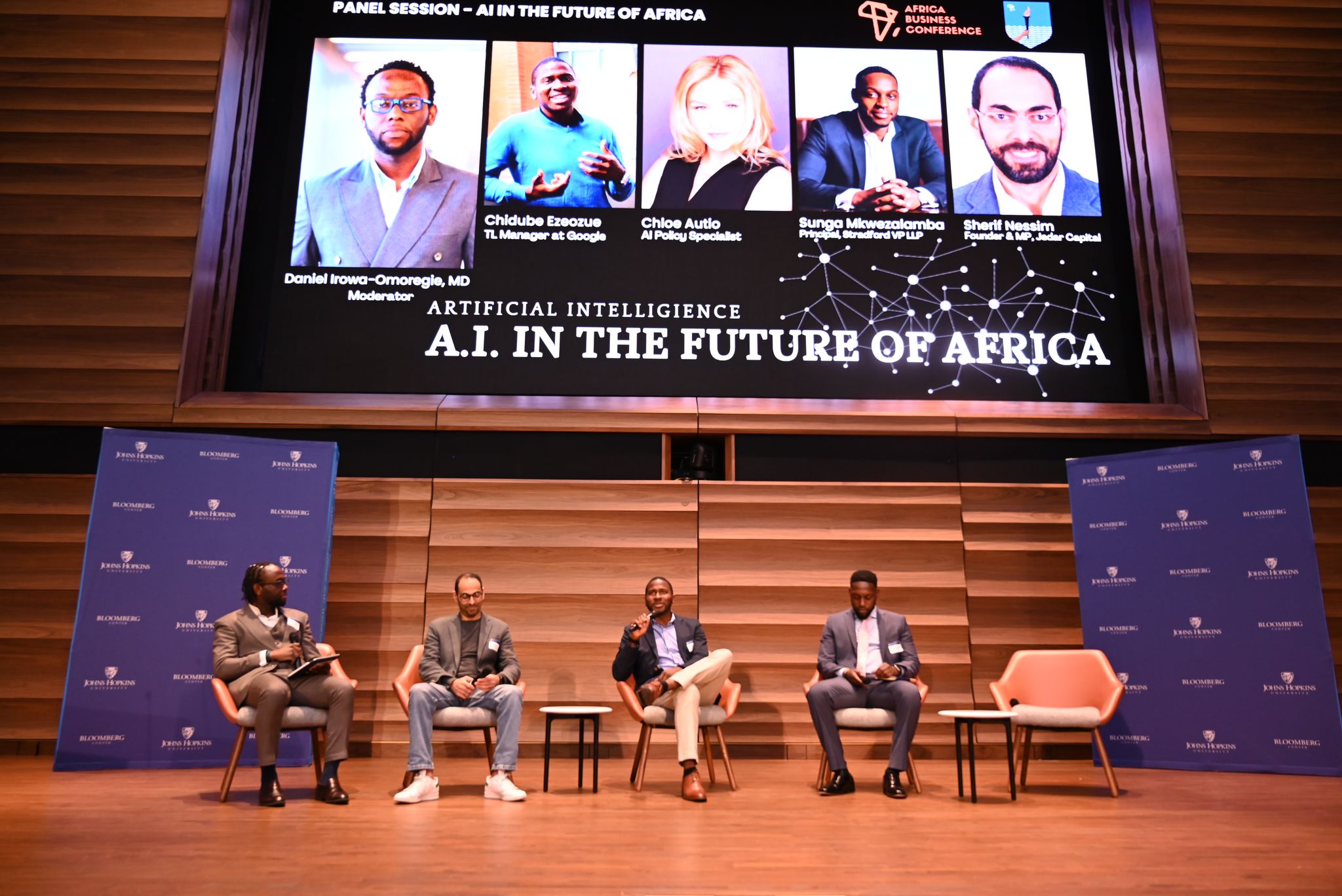
The AI session, titled “AI in the Future of Africa: Fintech, Entrepreneurship, and Innovation,” brought together a panel of experts to explore the profound impact of artificial intelligence on Africa’s economic landscape. Moderated by Daniel Irowa-Omoregie, the discussion highlighted the diverse applications of AI across sectors such as fintech, agriculture, and healthcare. Chidube Ezeozue, a Senior Staff Software Engineer at Google, emphasized AI’s potential to optimize processes, enhance productivity, and unlock new opportunities. Sunga Mkwezalamba, a Principal at Stradford Venture Partners LLP, provided insights into the legal and regulatory frameworks necessary to support responsible AI adoption and entrepreneurship. Meanwhile, Sherif Nessim, the Founder and Managing Partner of Jedar Capital, shared strategic perspectives on AI-driven investment and its role in driving economic growth on the African continent. Together, the panelists underscored the transformative power of AI and inspired attendees to explore its possibilities for inclusive development and innovation.
Throughout the session, the panelists discussed the risks and challenges associated with AI adoption, including job displacement and ethical considerations. However, they also emphasized the importance of thoughtful policy frameworks and human-centered approaches to technology adoption. By fostering collaboration and strategic investment, the panelists envisioned a future where AI catalyzes economic growth, empowers entrepreneurs, and fosters innovation across Africa. Their insights highlighted the immense potential of AI to address pressing challenges and drive sustainable development, positioning Africa at the forefront of the global AI revolution.
The mid-morning keynote address by Prof. Ndubuisi Ekekwe, Chairman of Takeda Institute, provided a thought-provoking examination of Africa’s economic potential and the pivotal role of innovation in driving growth. Ekekwe’s illuminating discourse laid the groundwork for subsequent discussions on sustainable resource management, job creation, and the transformative power of technology.
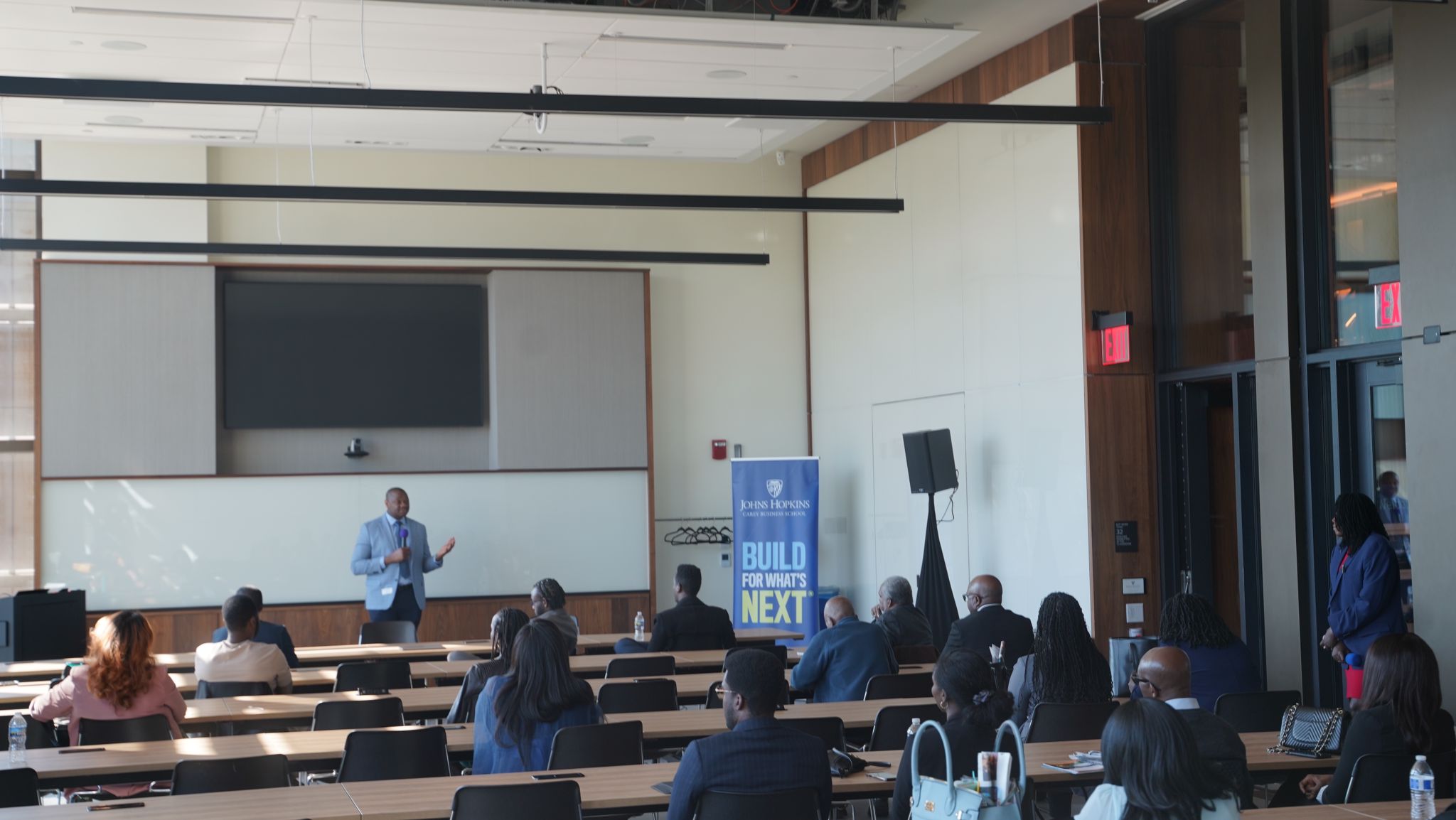
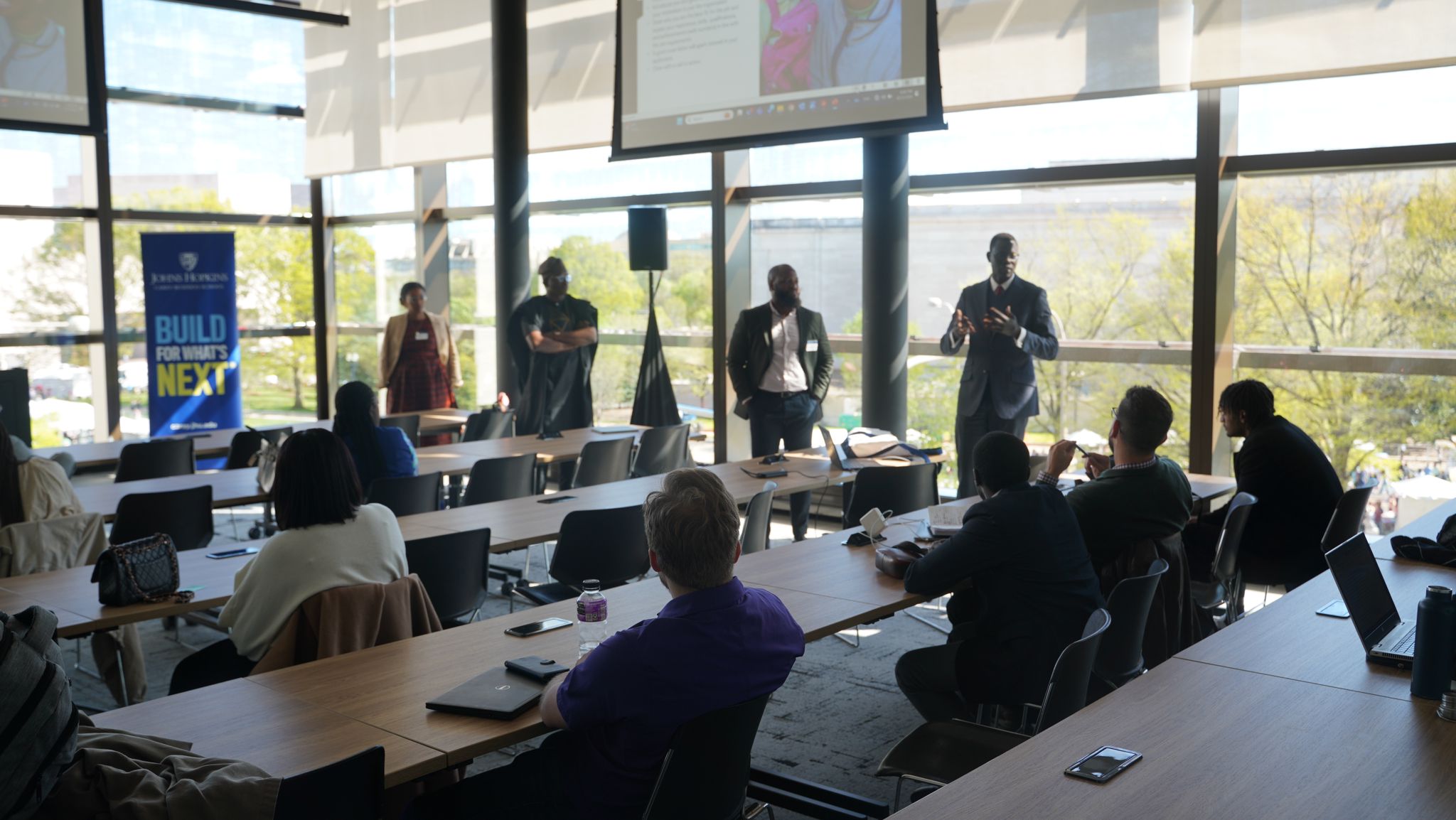
The breakout sessions, spanning topics such as healthcare, technology, business, entrepreneurship, policy, international relations, government, and nonprofits, coordinated by Cedric Bengue – Global Talent Acquisition Specialist, working with the World Bank Group, offered attendees a unique opportunity to delve deeper into areas of interest and engage with subject matter experts. Each session, led by distinguished speakers and moderators, provided valuable insights and networking opportunities, fostering collaboration and knowledge exchange among participants.
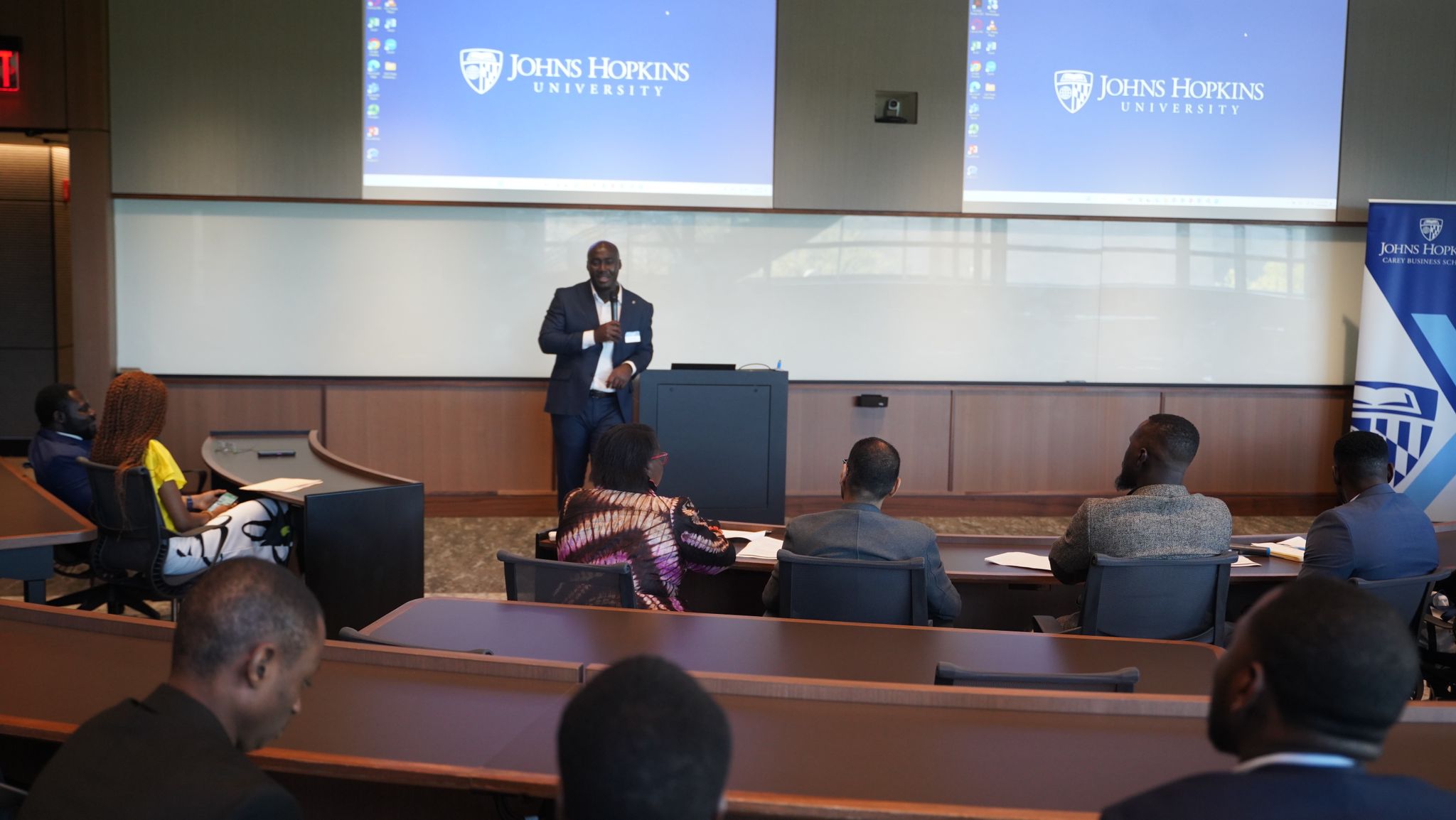
During the conference, a significant highlight was the consulting blitz sponsored by Rachael Afolabi, CEO of Paradigm Global Innovation and Atunse Innovation. This innovative segment provided a practical platform for Business Students from Johns Hopkins Carey Business School to apply their expertise in real-world African markets. The consulting blitz not only underscores the commitment of Paradigm Global Innovation and Atunse Innovation to practical education but also sets the stage for a robust partnership aimed at enriching the academic and professional experiences of future business leaders. Highlighting the success of this initiative, Onwubiko Iheanyichukwu Samuel and Ezinne Aso emerged as the co-winners of the first consulting blitz. Their achievement marks a significant milestone as they will be the first set of business students participating in this transformative experience abroad.
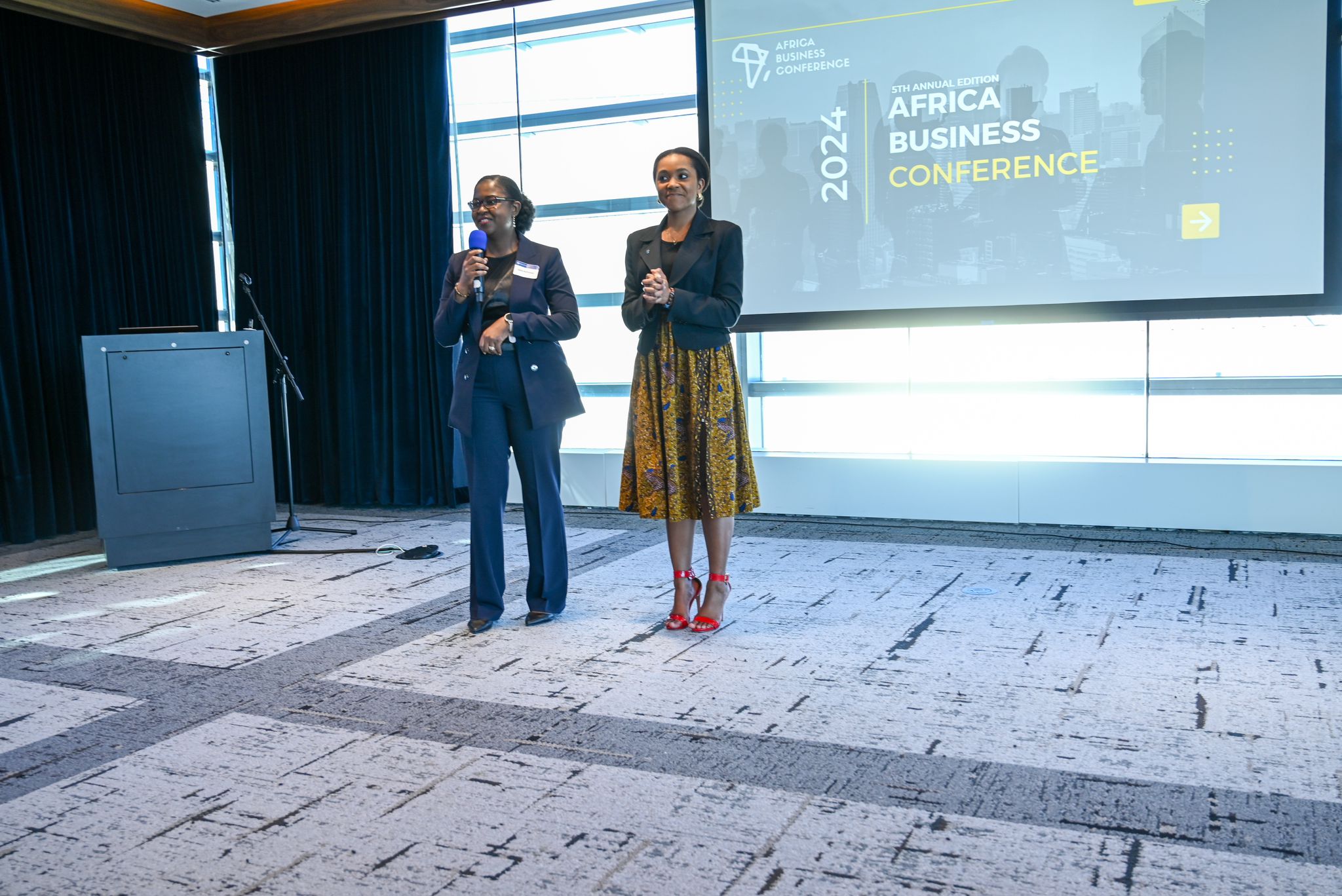
As the conference drew to a close, Laura and Noelle, the Presidents of the Clubs, delivered closing remarks and hosted a networking mixer, providing attendees with an opportunity to reflect on the day’s discussions and forge lasting connections. Departing with a renewed sense of purpose and commitment, participants left the conference inspired to contribute to Africa’s economic resurgence and drive positive change in their respective spheres of influence.
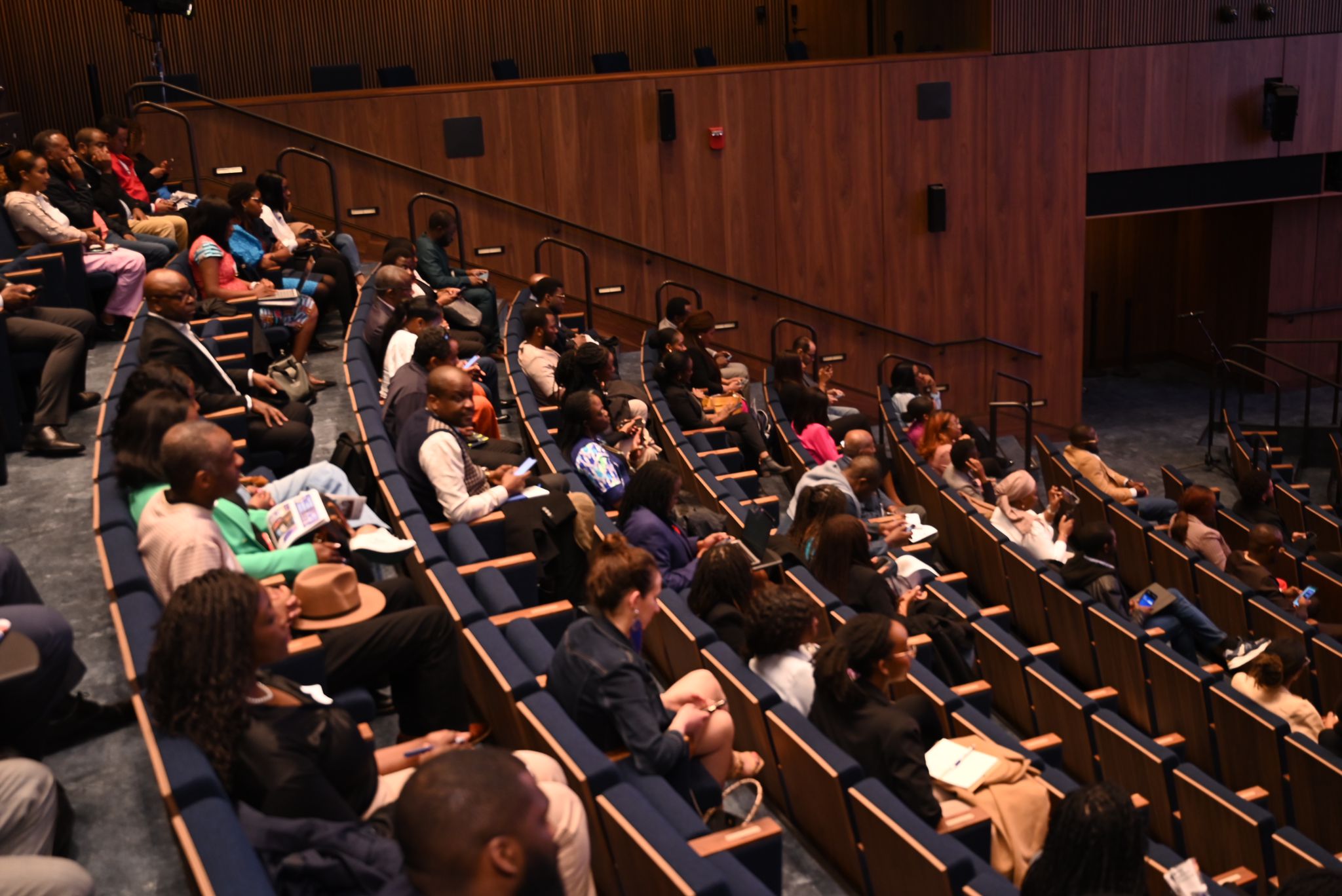
In summary, the African Business Conference served as a catalyst for dialogue, collaboration, and action, uniting stakeholders from across the globe in a shared mission to empower Africa and unlock its boundless potential. Through insightful discussions, thought-provoking keynotes, and meaningful connections, the conference illuminated a path toward a brighter, more prosperous future for Africa and its people.








